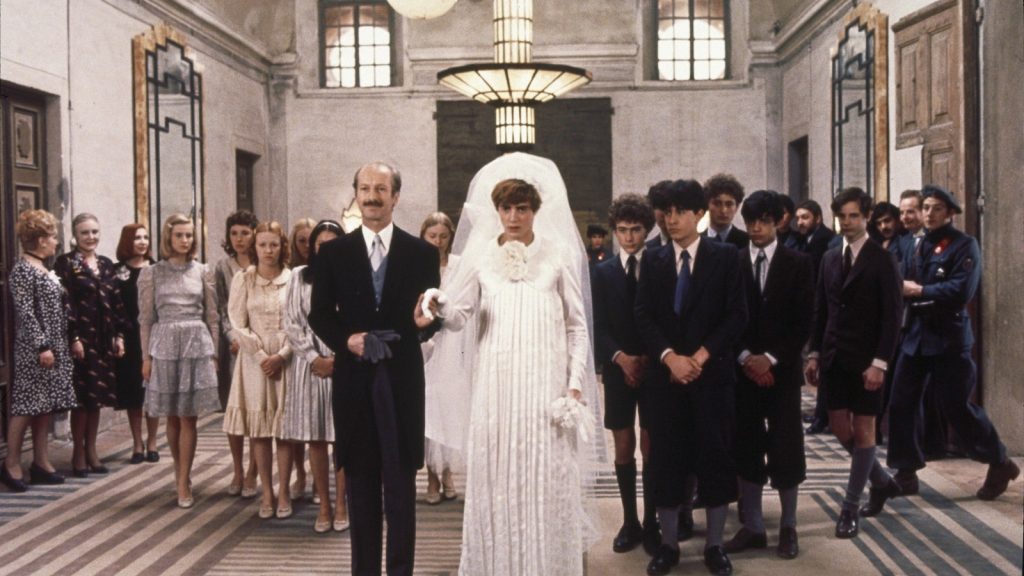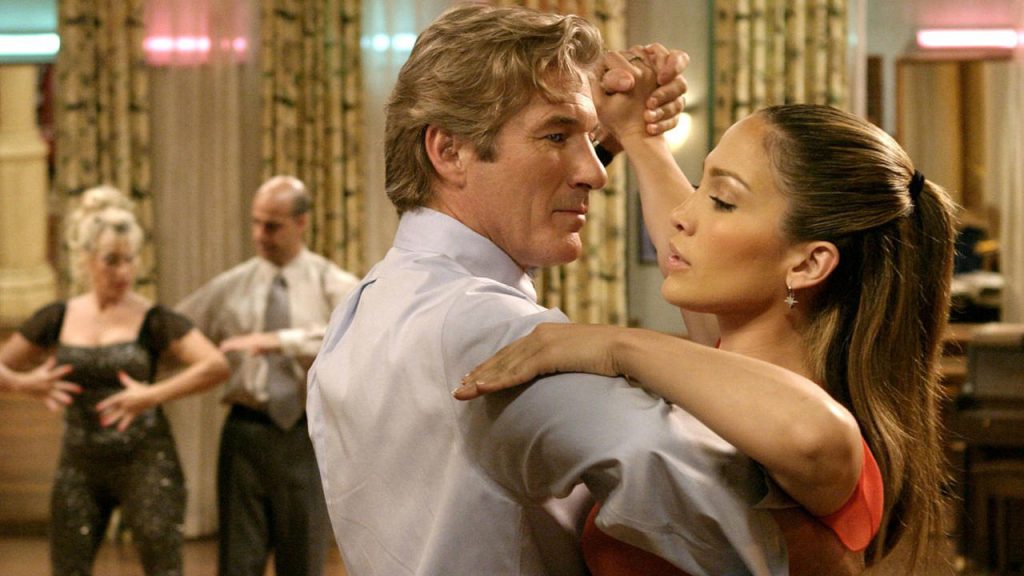HandMade Films was formed by George Harrison and his business manager, Denis O’Brien, for the express purpose of bankrolling Monty Python’s Life of Brian – so it was only natural that the company became a clearinghouse for Python-related film projects in the early ’80s. These included Live at the Hollywood Bowl, Terry Gilliam’s Time Bandits, the Michael Palin-starring The Missionary and A Private Function, and Privates on Parade, in which John Cleese appeared. After its early successes with Brian, Time Bandits, and the gangster drama The Long Good Friday, however, HandMade nearly ran aground thanks to expensive boondoggles like Water (a Caribbean-set comedy starring Michael Caine) and the Sean Penn/Madonna fiasco Shanghai Surprise; Harrison attempted to shore up both by filming cameos and composing original songs, to no avail. There still were a handful of bright spots – Neil Jordan’s Mona Lisa and Bruce Robinson’s Withnail & I chief among them – but coupled with O’Brien’s labyrinthine business deals (which the Pythons attempted to warn Harrison about) and penchant for meddling with their films (which author Robert Sellers details in his book Very Naughty Boys: The Amazing True Story of HandMade Films), by the end of the decade it was increasingly clear HandMade’s days were numbered.
This was the prevailing atmosphere when Eric Idle was approached by O’Brien about headlining Nuns on the Run (released thirty years ago today), prompting Idle to quip, “I made the first HandMade film, now I can make the last.” Written and directed by Jonathan Lynn, an old mate of Idle’s, Nuns paired him with Robbie Coltrane (subbing for Palin, who was Lynn’s first choice) as Brian Hope and Charlie McManus, two genial, low-level gangsters who want out of their firm since the new ownership is more keen on guns and killing than they are. (To illustrate this, Lynn shows their boss watching a scene from The Long Good Friday when he calls Brian and Charlie on the carpet.) To complicate matters, they double-cross two of their associates while stealing a million pounds from Hong Kong’s Triad gang, putting them on the wrong side of the police, the Triads, and their own firm. On top of that, Brian has fallen in love with a myopic waitress named Faith (Camille Coduri) whose life is endangered by their association.
Oh, yes. And when their getaway car runs out of petrol outside a convent attached to a teacher’s college, Brian and Charlie have to pose as nuns – the hastily named Sister Euphemia of the Five Wounds and Sister Inviolata of the Immaculate Conception – until they’re able to make off with the money.

“If we’re good nuns, God will see us through,” Charlie says, but since he’s the one with a working knowledge of Catholic doctrine, naturally it falls to Brian to teach a theology class about the finer points of the holy trinity, which he finds utterly baffling. “If it made sense, it wouldn’t have to be a religion, would it?” Charlie asks, which is fairly benign compared to the skewering believers got in Life of Brian. Then again, the Pythons’ target was organized religion in general, while Nuns merely uses Catholicism as a backdrop for farce. Other parallels between the films include cross-dressing (the women in fake beards at the stoning in Brian), mistaken identity (Brian Cohen for the messiah; Brian and Charlie for nuns, Brian for a priest), and blind faith. The latter is made literal by the fact that Faith can’t see a thing without her glasses, which harkens back to the blind man who’s swept along with the crowd that starts following Brian and claims “the master” healed him. “I was blind and now I can see!” he cries before falling into a hole, which is immediately declared a miracle. In comparison, the ribbing religion gets from Nuns is mild.
When it went into wide release in the US on March 30, 1990, Nuns on the Run did solid business, racking up close to $11 million at the box office. But it received a battering from some critics, with Gene Siskel and Roger Ebert leading the charge on their syndicated TV show, and Ebert calling it “inexplicable” and declaring “very little of the material is intrinsically funny” in his one-star Sun-Times review. The final straw, though, came when they continued to pummel the film on Live with Regis and Kathie Lee. In retaliation, American distributor Twentieth Century Fox banned the pair from future screenings, an edict lifted a short time later.
Meanwhile, when the film came out in the UK in early May, it took in three-and-a-half million pounds (according to Idle in his autobiography, Always Look on the Bright Side of Life). Because O’Brien had stiffed distributor Palace Pictures on a previous agreement, however, Palace stiffed HandMade right back, and those who deferred their salaries to get Nuns made (i.e. Idle, Coltrane, and Lynn) wound up empty-handed. The irony of HandMade’s final film under O’Brien’s stewardship – about criminals stealing a million pounds and jetting off to Rio – being a success and not making anybody any money can’t have been lost on them.



